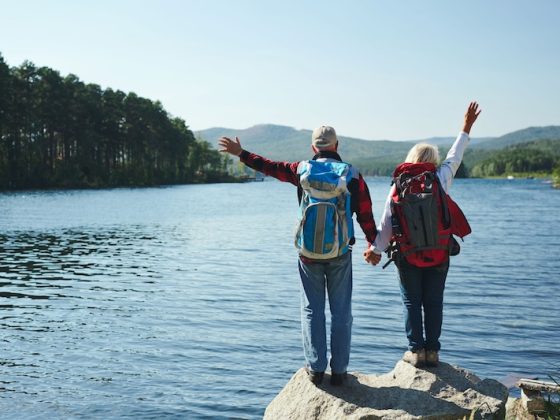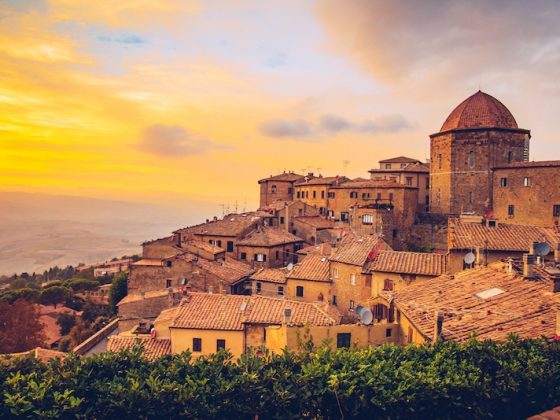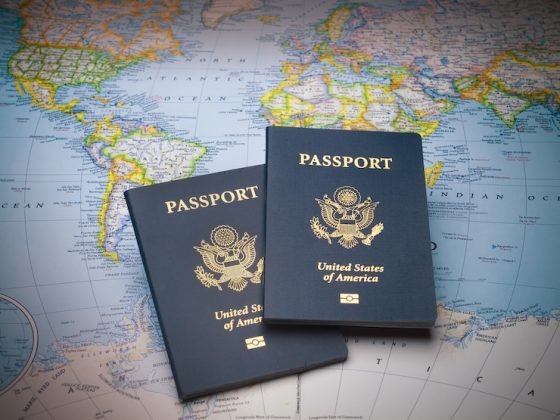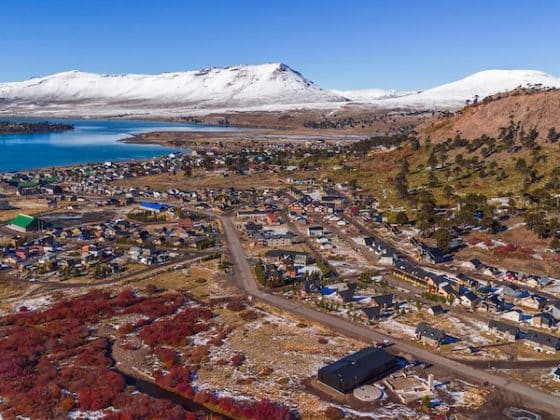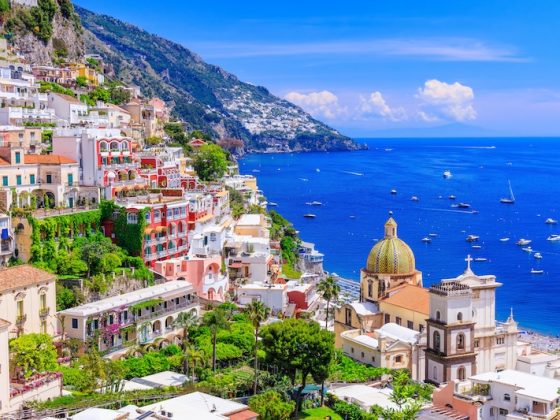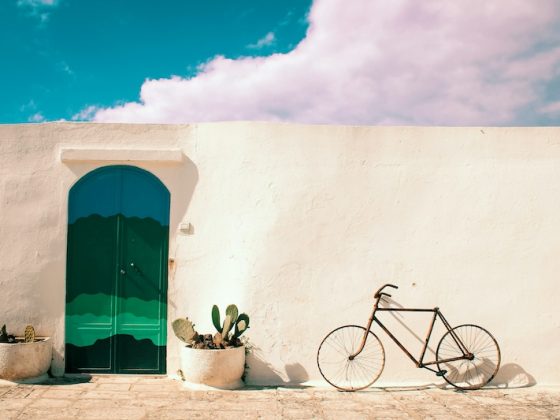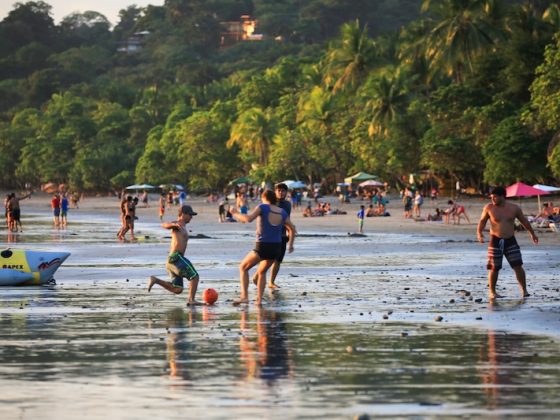Why Europe Still Calls
Europe is a continent built on contrast, where medieval lanes meet co-working lofts, and vineyards stretch beside high-speed rail lines. For centuries, people have crossed oceans to reach its cities and coastlines, drawn by culture, safety, and the sense that life here still values time as much as money.
Today, that call feels both practical and poetic. Healthcare that works. Trains that run. A sense of belonging built not from wealth, but from the ordinary grace of daily life.
For digital nomads, it means the chance to work from Lisbon rooftops or Berlin cafés while staying connected to global clients. For retirees, it means a slower pace, world-class hospitals, and public infrastructure that simply works. For investors, it means access to stable property markets and the world’s most valuable passport zone: the Schengen Area.
Europe’s immigration systems have adapted to this new wave. The once-exclusive “Golden Visas” are now joined by digital nomad, startup, and passive-income routes that open the door for a range of routines and budgets.
Europe has forty-four nations, but not all offer a clear path to residency, practical cost of living, or day-to-day livability for newcomers. This article focuses on the ones that do. Places where paperwork leads to possibility. Each of these countries balances accessibility with quality of life: Portugal and Spain for warmth and structure; France and Italy for depth and design; Greece and Croatia for coastal simplicity; Germany, the Netherlands, and Austria for stability; Ireland for its English-speaking openness; Estonia and Czechia for modern efficiency at fair cost. They represent different versions of the same idea: that Europe isn’t just somewhere to visit, but somewhere you can build a real, workable existence.
*Note: All data reflects 2025 program details. Check official sources for the most recent updates before making a decision.
How to Plan Your Move
Moving to Europe means more than finding a visa. It means designing a life that works financially, practically, and emotionally. Here’s how to build that foundation.
1. Define your “why.”
Are you chasing more time outdoors? Better healthcare? A hedge against rising costs and instability? Your “why” will shape everything. The country, the visa, the speed of integration. Retirees, freelancers, investors, and families all navigate different systems, even if they share the same dream of starting over.
2. Match your visa to your work style.
- Remote professionals: Look into digital nomad or self-employment visas (Spain, Portugal, Croatia, Germany).
- Retirees or those with passive income: Seek programs like Portugal’s D7 or Italy’s Elective Residence Visa.
- Investors and entrepreneurs: Explore Golden Visas or startup routes in Greece, Malta, or the Netherlands.
Each path has its own trade-offs (flexibility, renewal periods, or physical-presence rules) so pick based on how rooted you want to be.

3. Understand your tax position.
Europe isn’t tax-free, but it rewards foresight. Portugal, Spain, and Italy offer special regimes for newcomers, while others favor clear and predictable structures. The key is understanding your profile before you apply. A short consultation with a cross-border accountant can save months of confusion later.
4. Plan for permanence — or don’t.
Decide up front how long you want to stay. Some visas are renewable indefinitely, while others lead to permanent residency after a set number of years. In most countries, including Portugal, Spain, and Ireland, the timeline is around five years. Some investment-based programs can shorten that path, but the details vary. If citizenship is the goal, remember that presence counts. Time spent physically in the country matters more than how long your visa has been stamped.
5. Budget for the unglamorous parts.
Most newcomers plan for rent and groceries but forget translation fees, notarized documents, visa renewals, and private insurance during the first year. Costs vary wildly: a residence card in Prague might cost €200; in Lisbon, €600+ with legal help. Expect to spend 10–15% more than you think during setup.
6. Expect cultural recalibration.
Bureaucracy moves slower in southern Europe, faster in the north. Shops close earlier. Lunch is sacred. The trade-off for efficiency is charm; the trade-off for charm is patience. Adjusting to that cadence is part of the work.
Read More Like This: Is Now the Time to Co-Live and Work in Europe?
Before You Pack
Europe rewards preparation more than spontaneity. The dream moves faster when the details are handled early.
Banking
Digital banking is widely accepted, but not universal. In Portugal or Spain, opening an account may still require a tax number and in-person appointment. Northern and Central Europe (the Netherlands, Germany, Estonia) run smoother online with services like N26 or Wise. In France and Italy, traditional banks still occasionally expect face-to-face meetings and local proof of address. A mix of one international and one local account usually works best.
Documents
Every signature seems to need a supporting paper. Apostilles, translations, and notarizations are essential almost everywhere, though rules differ. Southern countries tend to prioritize physical stamps and originals. Northern ones rely more on digital submissions. Bring more copies than you think you’ll need.
Housing
Rental norms shift with latitude. In Spain, deposits are usually one to two months. In Germany or Austria, three months is common. Portugal often asks for a tax ID to sign a lease, while Ireland’s market moves fast and rarely waits for documentation. Temporary accommodation (serviced apartments, Airbnbs, or short-term lets) can buy you time to navigate these systems locally.
Health insurance
Private coverage is mandatory for most visas. Plans from Cigna, IMG, or Allianz Global work well during the first year. Once you’re a resident, join the local system: public healthcare in countries like France, Portugal, and Spain is exceptional and affordable, while northern systems like Germany’s or Austria’s are efficient and comprehensive.
Connectivity
Internet and mobile coverage across Europe are excellent but vary in speed and price. Estonia leads in e-governance; Croatia and Greece are catching up fast. EU roaming means your phone plan works across borders, but long stays are cheaper with a local SIM. Vodafone, Orange, and Three dominate southern and western markets; Telekom and Elisa are strong in central and northern Europe.
Transport
Public transit defines European day-to-day. In major cities, monthly passes replace cars; in rural or island areas, you’ll still need one. Spain and Italy have extensive rail networks. Germany’s new flat-rate regional ticket simplifies travel nationwide. Portugal has a strong transport network with trains, subways and buses in major cities like Porto and Lisbon, although public transport starts thinnings out the more you move outside the major cities. Croatia relies more on buses, though routes are improving. Buy a rechargeable card early. It’s often your first step toward feeling local.
Every country has its quirks, but Europe shares one truth: the systems generally work once you learn how to navigate them. Preparation turns frustration into fluency, and small details like these make the difference between arrival and belonging.
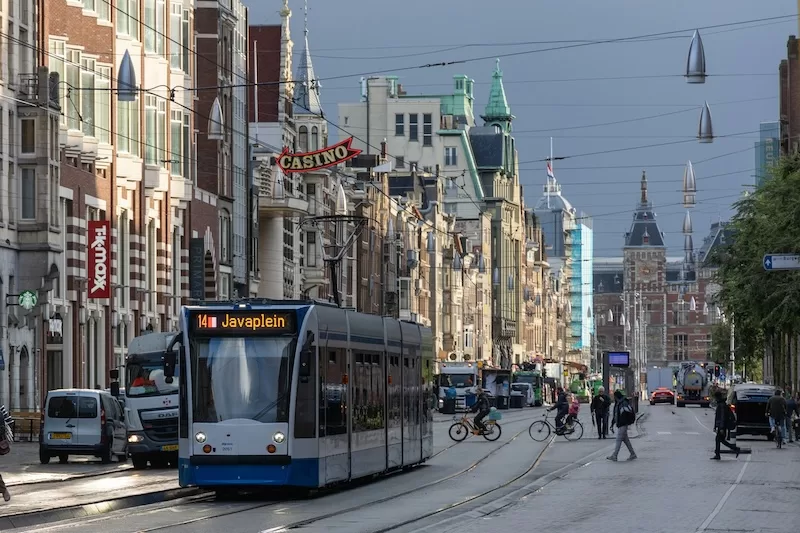
Country-by-country guide
Portugal
Best for: Remote professionals, retirees, and investors seeking balance between cost, climate, and connectivity.
Visa routes:
- D7 Visa: Passive income of at least €870/month, plus savings and health insurance.
- Digital Nomad Visa (D8): Minimum income around €3,280/month.
- Golden Visa: Now limited to fund, cultural, or business investments (from €250,000–€500,000).
Taxes: Portugal replaced its Non-Habitual Resident program with NHR 2.0 (IFICI), a selective tax regime favoring tech, science, and R&D professionals.
Lifestyle: Portugal feels both familiar and foreign. In Lisbon, mornings start with the metallic clatter of trams and the smell of fresh coffee. People talk in doorways, not in a hurry, just unwilling to end the conversation. In Porto, winter rain slides down tiled façades, and you learn to carry an umbrella without resenting the weather. You eat a francesinha and forget all about the rain outside. You take a walk and marvel at how the fog seems to drape around the Douro river and the buildings in the Ribeira neighborhood. The Algarve looks simple on postcards, but the real life happens inland, in small towns where the baker still closes at noon and every dog seems to belong to everyone. It’s not perfect. Things take longer than they should. But there’s a sense of proportion. Enough work, enough rest, enough sun to forgive most things.
Pros: EU mobility, affordable living, five-year path to citizenship.
Cons: Public processes can test patience; new tax regime less inclusive.
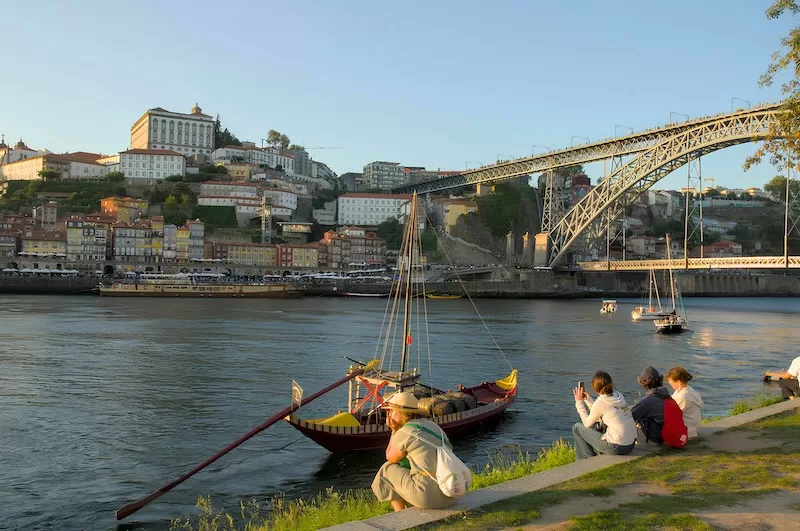
Spain
Best for: Families, digital nomads, and long-term expats craving sun, culture, and connectivity.
Visa routes:
- Digital Nomad Visa: Income of ~€2,800/month, valid up to five years.
- Non-Lucrative Visa: Proof of €28,000+/year in passive income.
Taxes: The Beckham Law allows new residents to pay a flat 24% on Spanish-source income for six years, excluding most foreign income.
Lifestyle: Spain works because it doesn’t pretend to be anything else. The mornings start with the smell of toast, oil and sometimes tomatoes (in Madrid, replace that with the smell of hot chocolate and churros), the scrape of chairs being pulled onto sidewalks. The clerical labyrinth can empty a day, but then you step outside and there’s light all over: on the faces, in the air, across buildings that refuse to age. In Madrid, people fill bars the way others fill churches; there’s faith in the ritual of gathering. In Valencia, neighbors argue about football, then share dessert. Even the smallest towns have their own outdoor plazas and their own calendar, from festivals, to closures, to moments when the whole place turns communal. You live well not because it’s easy, but because people insist on enjoying what they have.
Pros: Strong infrastructure, excellent healthcare, generous expat tax system, relaxed social culture.
Cons: Higher overall taxes once Beckham ends; rising rent in major cities; paperwork and wait times vary by region.
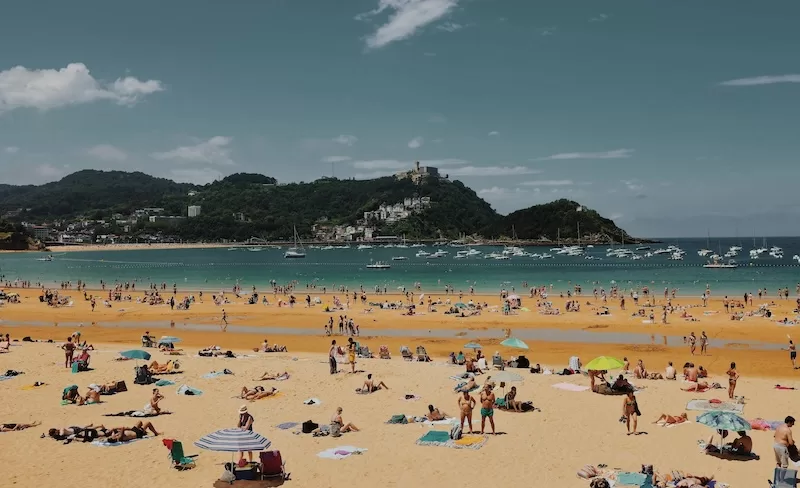
France
Best for: Skilled professionals, creatives, and families drawn to structure, style, and strong public systems.
Visa routes:
- Talent Passport: For skilled professionals, entrepreneurs, and investors.
- Long-Stay Visitor Visa: Proof of passive income or remote work.
Taxes: Progressive, but offset by social services and the Impatriate regime, which grants partial tax exemptions for up to eight years.
Lifestyle: France teaches you to notice. The sound of cutlery in a café means lunch has begun, and the street outside briefly empties. In Paris, every block feels curated; florists, fromageries, bookshops arranged as if by instinct. Public processes can flatten your spirit, but then you step into a patisserie at 4 p.m. and remember why you stayed. Lyon gives you order and warmth in equal measure; Bordeaux feels stitched together by wine and conversation. Even in the smallest towns, there’s a sense that each day should be well lived. France doesn’t make things easy, but it makes them worthwhile.
Pros: Deep cultural integration, world-class services, generous family benefits.
Cons: Complex tax system, strict paperwork standards, high housing costs in Paris.
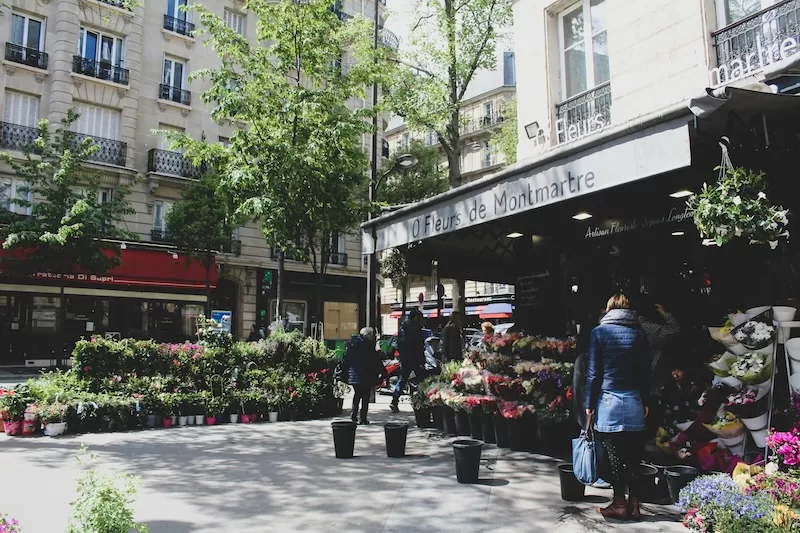
Italy
Best for: Retirees and investors drawn to art, food, and rural revitalization programs.
Visa routes:
- Elective Residence Visa: Proof of stable income (around €2,600/month).
- Investor Visa: €250,000–€500,000 in startups, funds, or government bonds.
Taxes: New residents can opt for a €100,000 flat tax on foreign income for 15 years. Pensioners moving to southern regions may qualify for 7% flat tax on global income.
Lifestyle: Italy has edges, and that’s part of its charm. You’ll argue with someone before noon and laugh with them an hour later. In Rome, every errand turns into a conversation. In Florence, time bends; you’ll step into a shop for stationery and leave an hour later with a coffee and a story about the owner’s uncle. The country frustrates and rewards in equal measure. Documents get lost. Trains can sometimes run late. But there’s always something to redeem the day: a plate of pasta that feels impossible to improve, a sweet maritozzo that immediately makes you forget any hiccup the day had, a stranger who helps you parallel park, a sunset that makes the whole street pause, a spritz sipped in an impossibly quaint street corner terrace.
Pros: Exceptional food culture, history, affordable rural homes, long-term tax clarity.
Cons: Slow formalities, language hurdles, regional economic disparities.
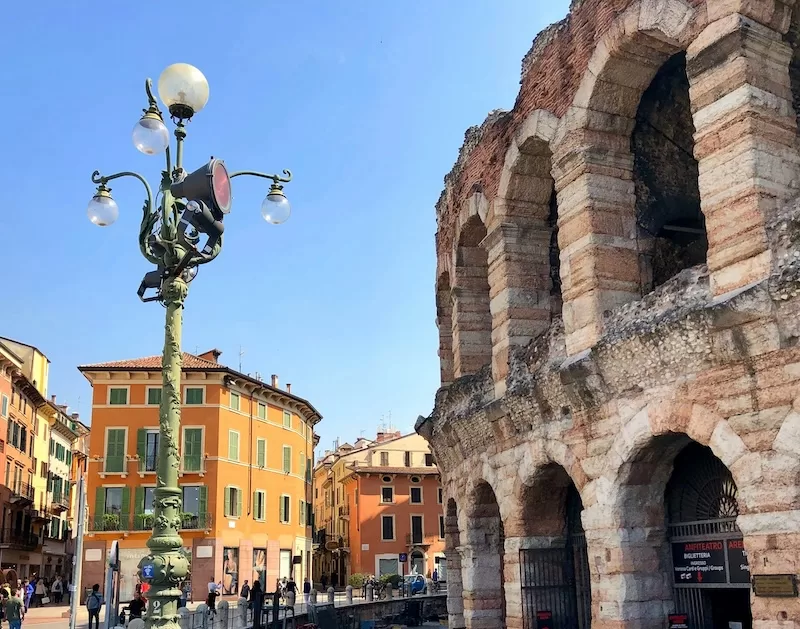
Greece
Best for: Investors and remote professionals chasing sunlight, history, and a permanent European foothold.
Visa routes:
- Golden Visa: €400k–€800k investment depending on zone, €250k for restoration projects.
- Digital Nomad Visa: Proof of €3,500/month net income.
Taxes: New residents can receive a 50% income tax exemption for up to seven years on foreign earnings.
Lifestyle: Greece feels lived in, not staged. You see it in chipped paint on white walls and in the way strangers pour you more wine without you even asking. Athens moves between history and chaos; both feel honest. The islands promise peace, but they’re working places too. Fishermen, teachers, shopkeepers who talk politics between customers. You’ll deal with forms and filings that seem to exist for its own amusement, yet someone will help you through it with a shrug and a smile. Evenings come with a kind of generosity you can’t fake: grilled fish, salt on your fingers, and laughter that carries farther than it should. The beauty is resilient more than it is polished.
Pros: EU base, warm climate, low property taxes, affordable lifestyle.
Cons: Public mechanisms can be erratic; rising real estate prices in popular areas.
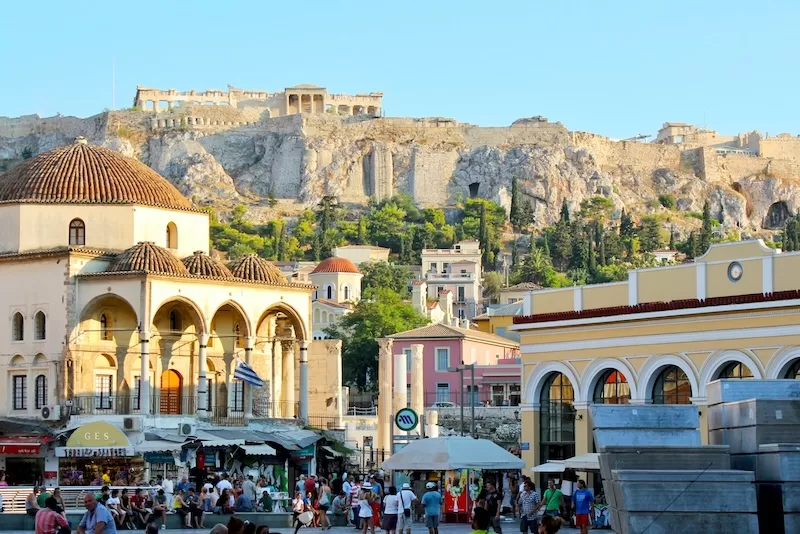
Germany
Best for: Skilled professionals, freelancers, and families valuing stability and social systems.
Visa routes:
- Freelance Visa: For self-employed or creative professionals (requires local clients or contracts).
- EU Blue Card: For skilled employees earning €45,000+/year.
Taxes: Progressive rates with strong social benefits. Expats pay higher deductions but gain access to excellent healthcare, childcare, and pensions.
Lifestyle: Germany rewards the patient. Everyday reality may seem strict and orderly on the surface (trains that keep their schedules, bins that know their colors, streetlights that are obeyed no matter what) but what you remember most is the calm underneath it. Berlin has many corners that feel improvised, where creativity and spontaneity run free, where art pops up out of unlikely corners, where artists share courtyards with accountants. Munich runs on precision; it’s spotless, serious, confident. In smaller cities, there’s a deep respect for work and rest: Sundays are quiet, not out of law, but custom. It takes time to break through the reserve, but once you do, friendships are lasting and straightforward. There’s little spectacle, just steadiness. And that, in its own way, is luxury.
Pros: Job security, excellent public services, clear pathways to PR.
Cons: Heavy paperwork, colder interpersonal culture until you settle in, higher cost of living in top cities.
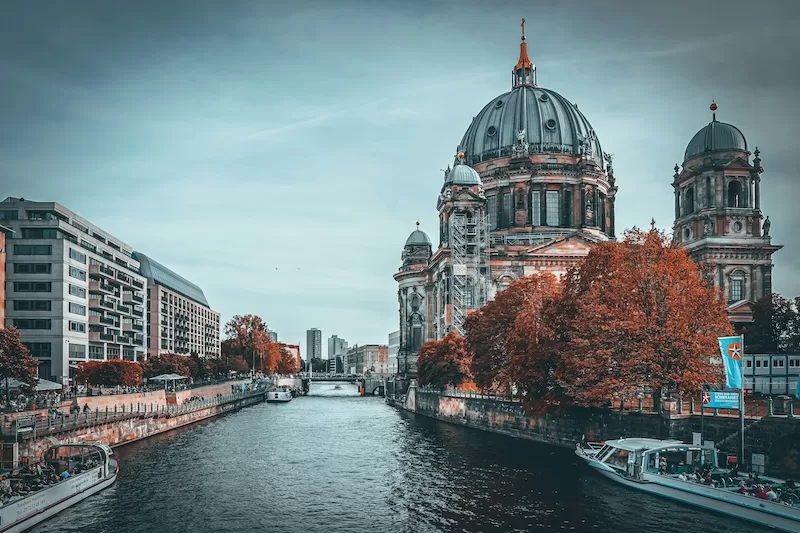
Netherlands
Best for: Entrepreneurs, remote professionals, and families seeking urban comfort.
Visa routes:
- Startup Visa: One-year renewable route for innovators with Dutch mentors.
- Self-Employment Visa: Based on proof of business viability and sufficient income.
Taxes: The “30% ruling” lets qualifying expats receive 30% of income tax-free for five years.
Lifestyle: The Netherlands works almost too well. Trains arrive when they should, bikes outnumber people, and the rain arrives like clockwork. But behind the order there is room for softness. Neighbors who leave tulips on doorsteps, baristas who remember your name after a week. Amsterdam is busier than it looks in photos; it’s a city that buzzes through the drizzle. Smaller towns like Utrecht or Haarlem offer the same beauty at half the speed and half the rent. Life happens on two wheels. The country’s flatness has a strange charm; you can see for miles, and somehow that space makes everything feel lighter.
Pros: Business-friendly, English fluency, smart governance, good schools, flat geography for easy travel.
Cons: Housing shortage, high rent, competitive work culture.
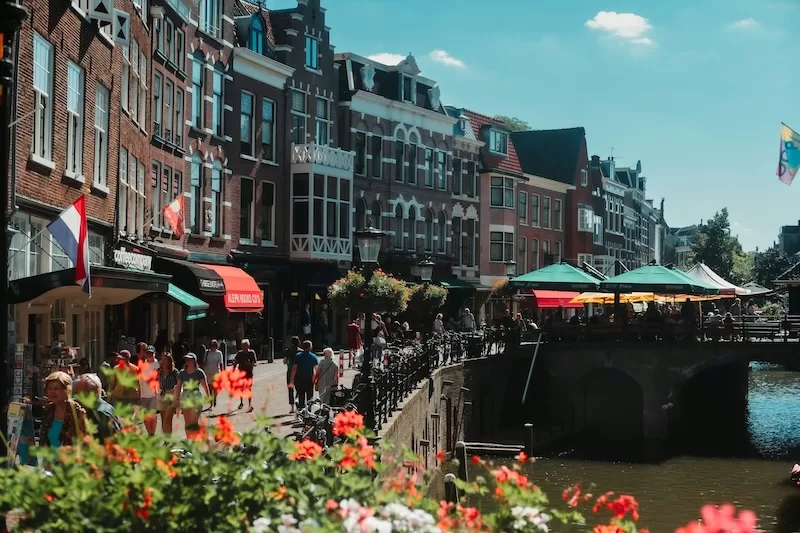
Austria
Best for: Investors and retirees seeking stability and high living standards.
Visa routes:
- Red-White-Red Card: Points-based for skilled professionals and entrepreneurs.
- Private Means Visa: Proof of sufficient passive income (€2,000+/month).
Taxes: Progressive rates, but residents benefit from extensive social infrastructure.
Lifestyle: Austria feels composed. Everything — from the train schedules to the way people hold doors for strangers — runs on precision. Vienna balances elegance with comfort; you can drink coffee under chandeliers for the price of a sandwich. The mountains make weekends sacred: trains fill with hikers, skiers, families carrying thermoses of soup. Bureaucracy exists, but it’s efficient; you might even start to trust it. The country feels built for people who like it when life makes sense but still want beauty nearby. It’s not loud about it. It doesn’t need to be.
Pros: Exceptional quality of life, stability, safety, immaculate public services, long-term PR.
Cons: Expensive; limited visa quotas; processes move precisely, not quickly.
Ireland
Best for: English-speaking professionals, remote workers, and families seeking EU residency with strong career opportunities.
Visa routes:
- Employment Permit: For professionals earning €34,000+ annually in eligible roles.
- Start-up Entrepreneur Programme: Minimum €50,000 investment in an innovative business.
- Stamp 0 (Retirement Option): Proof of stable income or pension and private health insurance.
Taxes: Progressive, but flexible for non-domiciled residents. Foreign income not remitted to Ireland can remain tax-free. Double-tax treaties protect global earners.
Lifestyle: Ireland’s charm sneaks up on you. It’s in the way people start conversations at bus stops, the patience of shopkeepers who still give you exact change, the light that seems to change the color of everything. Dublin feels driven, full of cranes and possibility; Galway feels like an exhale after too many deadlines. The weather rarely behaves, but people do. There’s a civility, a warmth that feels earned. Pubs aren’t just for drinking; they’re for talking, remembering, and waiting out the rain together. You’ll grumble about the rent, curse the damp, and then, walking home, smell turf smoke from a chimney and forget what you were complaining about.
Pros: English-speaking EU base, strong job market, fast-track to PR and citizenship, excellent public services.
Cons: High rent and living costs, limited property supply in major cities, rainy climate.
Croatia
Best for: Digital nomads, retirees, and investors drawn to Mediterranean living at moderate cost.
Visa routes:
- Digital Nomad Visa: Proof of income around €2,500+/month and remote employment.
- Temporary Residence: Renewable annually, based on savings, property ownership, or long-term stays.
Taxes: Standard EU tax rates, but non-residents are taxed only on Croatian-sourced income. Tax residency begins after 183 days of physical presence.
Lifestyle: Croatia surprises you with how quickly it starts to feel like home. Mornings begin with the sound of church bells. In Split, people still talk to one another in the market, arguing about prices as if it’s sport. Dubrovnik gets crowded in summer, but if you walk five streets inland, it’s just neighbors hanging laundry in the wind. Zagreb feels steady, with trams, bookstores, and parks that fill with people at dusk. Days runs on small rituals: a swim after work, grilled fish by the sea, a beer with friends who show up without needing to ask. You learn that simplicity isn’t lack; it’s choice.
Pros: Affordable EU coastal life, Schengen access, low crime, high digital-nomad acceptance.
Cons: Public processes can be uneven; tourist-season costs spike in popular areas.
Estonia
Best for: Digital entrepreneurs, remote professionals, and tech founders seeking efficient, paperless living.
Visa routes:
- Digital Nomad Visa: Requires income of at least €3,500/month from remote work.
- Start-up Visa: For founders with innovative companies and €65,000+ in startup capital.
- e-Residency: Not a visa, but allows remote company registration and digital banking.
Taxes: Flat 20% personal income tax; corporate profits are untaxed until distributed. Estonia’s simplicity and digital efficiency make compliance easy even for global earners.
Lifestyle: Estonia feels slightly like the future. The streets are clean, the Wi-Fi never fails, and formalities happens behind a laptop instead of a counter. Tallinn mixes medieval rooftops with glass offices, old and new sitting comfortably side by side. People aren’t loud, but they’re kind; help arrives without fanfare. Winters are long, but summer makes up for it: endless daylight, festivals by the sea, the smell of pine carried on wind that hasn’t touched a mountain in a thousand miles. It’s a place for those who like things that work but don’t mind the solitude that comes with it.
Pros: Efficient governance, low taxes, low bureaucracy, English-friendly, modern infrastructure.
Cons: Cold winters, limited flight connections, smaller social scene outside Tallinn, smaller expat base.
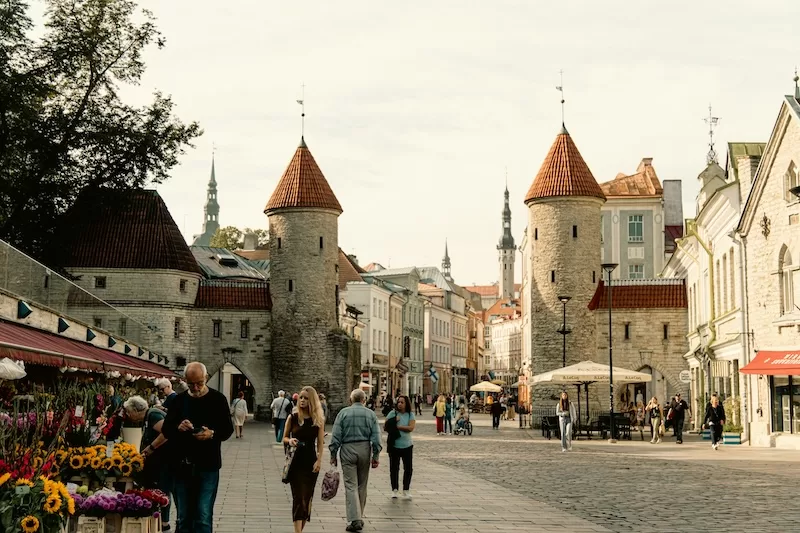
Czechia (Czech Republic)
Best for: Freelancers, creatives, and professionals seeking an affordable, high-quality European base.
Visa routes:
- Freelance Visa (“Živno”): Based on trade license; requires proof of contracts and ~€1,900+/month income.
- Employment or Business Visa: For long-term work or entrepreneurship.
Taxes: 15% income tax up to a set threshold, 23% above it. Social contributions apply, but overall costs are moderate. Living expenses are far below Western Europe, making it ideal for long stays.
Lifestyle: Czechia feels effortless once you learn to navigate it. Prague looks cinematic, but after a while you stop seeing the postcards and start noticing the details: the smell of roasted chestnuts in winter, the sound of trams rounding corners, how every bar seems to have the right lighting. Life is organized but unhurried. People value competence, conversation, and the pleasure of a well-poured beer. Outside the capital, towns like Brno or České Budějovice offer an easy kind of contentment: walkable streets, good trains, and enough time to actually use them. It’s not loud or showy. It’s comfortable, and that comfort feels earned.
Pros: Excellent cost–quality ratio, Schengen access, low bureaucracy, cultural depth.
Cons: Language can be challenging outside cities; cold winters.
Read More Like This: A Trip to Europe – Everything You Need to Know
Quick-compare table
| Country | Main Route(s) | Minimum Income / Investment (2025) | Tax Angle (Summary) | Time to PR / Citizenship |
| Portugal | D7 / D8 (Digital Nomad) / Golden Visa (funds only) | D7: €870+/month income; D8: €3,280+/month; GV: €250k–€500k in funds or culture | NHR 2.0 (IFICI) offers selective 10-year tax perks for key professions | PR renewable; citizenship after ~5 years |
| Spain | Digital Nomad Visa / Non-Lucrative Visa | DN: €2,800+/month; NLV: €28,000+/year passive income | Beckham regime: 24% flat on Spanish-source income (6 years) | PR after 5 years; citizenship after 10 years |
| France | Talent Passport / Long-Stay Visitor Visa | ~€2,500–€3,000+/month income or proof of financial means | Impatriate regime: partial tax exemption for 8 years | PR after 5 years; citizenship after 5 years |
| Italy | Elective Residence / Investor Visa | ER: ~€2,600+/month; IV: €250k–€500k in startups or bonds | Flat €100k global income tax (15 years); 7% pensioner regime in south | PR after 5 years; citizenship after 10 years |
| Greece | Golden Visa / Digital Nomad Visa | GV: €400k–€800k investment; DN: €3,500+/month | 50% exemption on foreign income for 7 years | Long-term PR; citizenship after 7 years |
| Germany | Freelance Visa / EU Blue Card | Freelance: local contracts; Blue Card: €45,000+/year salary | Standard progressive tax; strong treaty network | PR after 5 years (3 with Blue Card); citizenship after 8 years |
| Netherlands | Self-Employment / Startup Visa | Proof of viable income (~€2,500+/month) or €50k+ startup funding | 30% ruling: 30% of income tax-free for 5 years | PR after 5 years; citizenship after 5 years |
| Austria | Red-White-Red Card / Private Means Visa | RWR: points-based (income €2,700+); Private Means: €2,000+/month | Standard EU progressive tax; strong benefits | PR after 5 years; citizenship after 10 years |
| Ireland | Employment Permit / Start-up Entrepreneur / Stamp 0 (retirement) | Employment: €34,000+/year; Entrepreneur: €50k+ investment | Progressive rates; foreign pension and investment income may be exempt for non-doms | PR after 5 years; citizenship after 5 years |
| Croatia | Digital Nomad / Temporary Residence | DN: ~€2,500+/month; TR: proof of savings or income | Standard EU tax; non-residents taxed only on Croatian income | PR after 5 years; citizenship after 8 years |
| Estonia | Digital Nomad / Start-up Visa | DN: €3,500+/month income; Start-up: €65k+ company investment | Flat 20% tax; corporate profits untaxed until distributed | PR after 5 years; citizenship after 8 years |
| Czechia | Freelance (“Živno”) / Employment / Business Visa | Freelance: proof of contracts + ~€1,900+/month income | Flat 15% income tax up to threshold, then 23%; low cost of living | PR after 5 years; citizenship after 10 years |
Key Takeaways:
- Fastest paths to permanent residency:
Among lifestyle visas, Portugal and Ireland offer straightforward five-year tracks with strong family inclusion.
- Best low-tax or expat-friendly regimes:
Portugal’s NHR 2.0 (IFICI), Spain’s Beckham Law, Italy’s €100k flat tax, and Greece’s 50% exemption all create real savings for newcomers. For freelancers and entrepreneurs, Estonia and Czechia keep things simple with transparent flat rates and low compliance hassle.
- Top value-for-money destinations:
Croatia and Czechia hit the sweet spot. EU quality of life without Western Europe’s costs. Both combine safe cities, accessible housing, and a slower rhythm at moderate monthly budgets.
- Strongest English-language options:
Ireland stands out for native English, EU access, and global career opportunities. The Netherlands also offers widespread English fluency.
- Best for digital nomads and startups:
Estonia, Portugal, and Croatia all feature digital nomad or start-up programs built for remote work. Each blends connectivity, community, and long-stay options for global professionals.
- Most family-friendly choices:
Spain, Germany, and Ireland balance education, healthcare, and safety. All three have generous family visas and high living standards.
- Best climate-lifestyle mix:
For sun and sea, Portugal, Greece, and Croatia deliver reliable weather, strong expat networks, and affordable Mediterranean style.
- Overall best quality–price–lifestyle ratio:
Czechia wins on balance: central location, EU stability, low bureaucracy, and a cost of living that still leaves room to enjoy the weekends.

Taxes: What Really Matters
Taxes can make many people panic but once you’re inside the system, they start to make sense. European taxes fund tangible things: public transit that works, healthcare that doesn’t bankrupt you, parks you really want to spend time in.
Here’s what shapes the real picture:
- Residency defines responsibility.
Spend more than 183 days a year in one country, and you’re a tax resident there. You’ll report worldwide income unless you’re in a special regime or a territorial system (rare inside the EU). - Expat regimes soften the landing.
Countries now compete for newcomers. Portugal’s NHR 2.0 (IFICI) offers selective exemptions for high-value professions. Spain’s Beckham Law caps local tax at 24%. Italy’s flat €100,000 option simplifies global income. Greece halves tax for seven years on foreign earnings. - Simple can beat low.
Estonia’s and Czechia’s flat structures (20% and 15% respectively) aren’t the lowest, but they’re refreshingly clear. You know what you owe, and paying it is straightforward. - Double-tax treaties save you twice.
Most European nations maintain treaties preventing you from paying on the same income at home and abroad. For Americans, global taxation still applies, but credits and exclusions ease the hit.
The takeaway: taxes in Europe aren’t a trap; they’re a trade-off. You pay into systems that give something back. The trick is choosing a country whose returns — in lifestyle, safety, or opportunity — feel worth the percentage.
Lifestyle Fits: Finding Your Version of Europe
Europe isn’t one lifestyle. It’s a menu. And what feels like freedom to one person (a quiet stone house in Tuscany, a fast fiber connection in Tallinn) might feel like exile to another. The key is knowing your vibe before you uproot your life for it.
- For families:
Spain, Portugal, and Ireland strike the best balance of safety, education, and warmth. Schools are solid, healthcare dependable, and communities welcoming. Playgrounds are full of kids from every continent. Life revolves less around “achievement” and more around presence. - For retirees:
Portugal’s coast, Greece’s islands, and Italy’s small towns all offer excellent healthcare and climates that encourage movement, not inertia. Daily costs stay low if you live like a local: morning markets, neighborhood cafés, slower meals - For digital nomads and freelancers:
Croatia, Estonia, and Czechia have done their homework. Each has a visa designed for remote workers and freelancers, and solid Wi-Fi in places you’d never expect. These countries are built for people who work globally but live locally. - For investors:
Ireland, Portugal, and Greece offer stable, long-term growth for those thinking decades ahead. You’re not just buying property; you’re buying access, liquidity, and mobility inside the EU. - For those chasing culture:
France, Italy, and Austria remind you that your day-to-day can be aesthetic. Museums aside, it’s the details: morning bread still warm from the bakery, summer concerts in public squares, conversations that stretch past midnight. - For seekers of order and calm:
Germany and the Netherlands promise predictability. Systems work, streets stay clean, and if you file your taxes on time, the state leaves you alone.
In the end, lifestyle isn’t about climate or cost. It’s about fit; the alignment between how you like your days to flow and how your new country asks you to live them.
What to Do Next (Your Playbook)
Relocation looks complicated until you break it into steps. Then it starts to feel like logistics instead of mystery.
- Do a “tax pre-mortem.”
Before you sign anything, model your new tax situation, both in your home country and in your destination. Surprises can be expensive. - Verify everything with official sources.
Visa thresholds, fees, and policies can change over time. Always confirm on embassy or government sites before applying. - Get your paperwork ready early.
Collect bank statements, income proof, health insurance, and a clean background check. Apostille them before leaving your country; you’ll thank yourself later. - Budget for setup.
The first few months come with deposits, translations, temporary housing, and unexpected errands. Having a cushion makes the document maze easier to bear. - Visit first if you can.
Spend a few weeks living your potential life: doing laundry, grocery shopping, walking instead of touring. You’ll learn more from that than any article. - Respect the local vibe.
You’ll notice the pace is different everywhere. Don’t fight it. Learn to stand in the right line, use the right greeting, pause long enough to listen. That’s how “expat” slowly becomes “resident.”
Common Mistakes Newcomers Make
Experience turns enthusiasm into wisdom. These are the errors that seasoned expats wish they had avoided.
- Assuming bureaucracy is universal
It isn’t. What feels efficient at home may be leisurely in Europe. Government offices still close for lunch, and you’ll occasionally need paper copies signed in blue ink. Patience is currency. - Underestimating local networks
Information often travels by word of mouth. A recommendation from a neighbor or a local Facebook group can solve a problem faster than official channels. - Skipping the language basics
English takes you far, but learning greetings and small courtesies changes everything. It signals respect and opens doors that Google Translate never could. - Forgetting tax timing
Residency for immigration and residency for taxes are not the same thing. Plan your arrival date carefully to avoid triggering double taxation. - Trusting photos, not places
Apartment listings online rarely show noise levels, humidity, or sunlight. Spend a few days in the area before signing anything. - Expecting instant belonging
Integration takes time. Locals notice consistency more than enthusiasm. Show up, participate, and the friendships will come.
Mistakes are part of the process, but foresight makes them cheaper and shorter. Moving to Europe will always have surprises; the art is reducing how many of them are avoidable.
FAQs
Q1: Is moving to Europe expensive?
It depends on where and how you live. Portugal, Greece, and Czechia can be comfortable on €1,800/month. In Ireland, you’ll need closer to €3,000. Rent drives the difference more than anything else, so pick your headquarters carefully.
Q2: Can Americans work remotely in Europe?
Yes. Most digital nomad visas allow one to five years of residence as long as your income comes from abroad. Portugal, Spain, Croatia, and Estonia are currently the most accessible.
Q3: What are Europe’s best options for retirees?
Portugal’s D7 Visa, Italy’s Elective Residence Visa, and Greece’s residency programs are the easiest entry points, with affordable healthcare and friendly tax treatment for pensions.
Q4: Do I need to speak the local language?
Not right away, but integration depends on effort. English gets you far in Portugal, Croatia, and the Netherlands; less so in rural France or southern Italy. Most permanent residency and citizenship processes require basic language proficiency (A2–B1).
Q5: How long before I can get permanent residency?
For most countries, the path takes about five years of consistent residence. Certain investor routes within Europe offer faster options, but the majority of long-stay visas — like those in Portugal, Spain, and Ireland — follow the same five-year pattern that leads naturally to citizenship eligibility later on.
Q6: How are taxes handled if I work for a U.S. company?
You’ll typically pay taxes where you’re tax resident (more than 183 days/year) but can use credits under double-tax treaties to avoid being taxed twice. Always consult a cross-border CPA before moving.
Q7: Can I bring my family?
Yes. Most visas include dependents from the start or allow family reunification later. Ireland, Spain, and Portugal are particularly family-friendly.
Q8: What about healthcare?
Once you become a resident, you can usually join the public system or keep private coverage. Healthcare across Europe is excellent and affordable.
Q9: Which countries offer the best cost–lifestyle ratio?
Czechia and Croatia for value, Portugal and Greece for climate and culture.
Q10: Can I eventually gain citizenship?
In most EU countries, yes, typically after five to ten years and basic language competence. Time in-country matters more than paperwork dates.
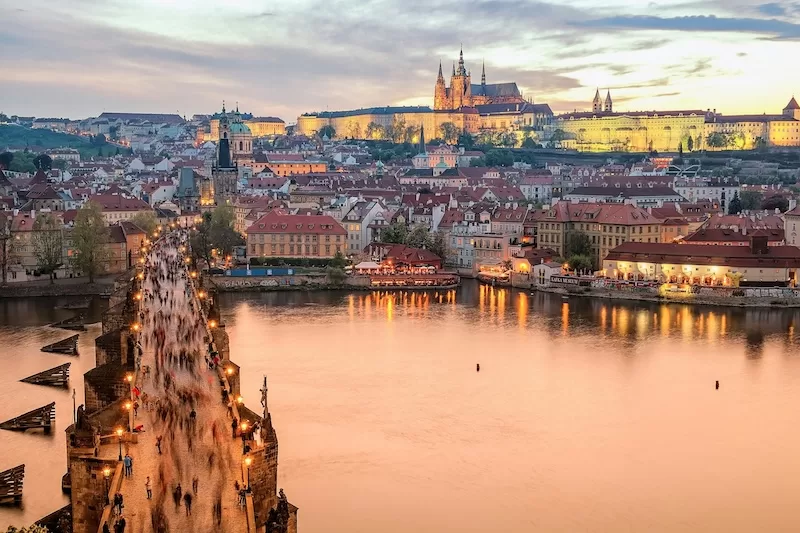
Where Practical Meets Poetic
Europe is a trade-off. You exchange convenience for meaning, predictability for depth, instant service for lasting craft, efficiency for character, fast food for long lunches. Bureaucracy may test you, weather may surprise you, and culture may humble you. But in return, you gain a steadiness that’s hard to find elsewhere. A sense that days have weight, texture, and ritual.
Moving here is about intent. You choose to design your routine more deliberately, to live in societies that still believe in the collective good, to measure time not by productivity but by presence.
From Lisbon’s tiled alleys to Tallinn’s clean code, from Croatia’s salt air to Prague’s trams gliding through fog, Europe keeps proving that modern life can be practical and poetic.
The paperwork fades. The life stays.
Want practical advice, real stories, and updates that make your move feel less abstract? Subscribe to our newsletter. Each edition brings clarity, context, and a little inspiration for wherever you’re heading next.

